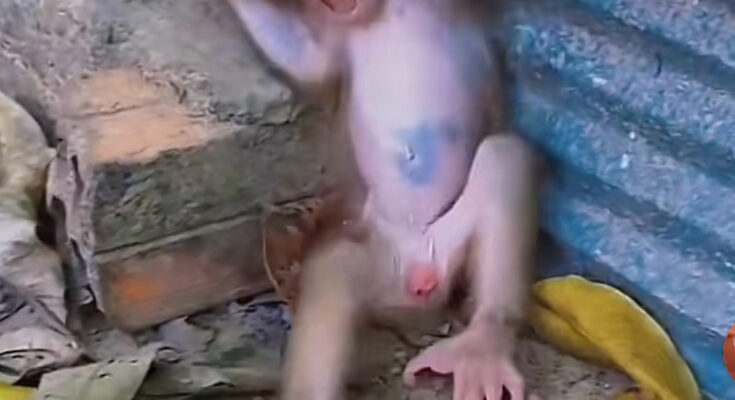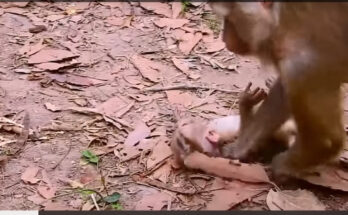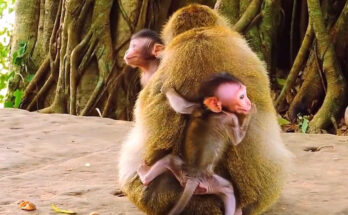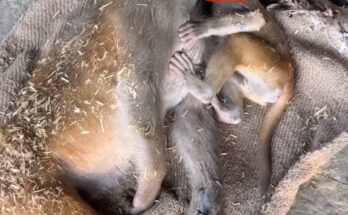In a curious twist of nature and mischief, a baby monkey in a small village in southern India found itself in a sticky situation — or more accurately, a nutty one — after getting its head stuck inside a discarded coconut shell for nearly two hours. The bizarre yet heartwarming incident has drawn attention on social media, shedding light on both animal behavior and the impact of human littering on wildlife.
A Curious Encounter Gone Wrong
The young monkey, estimated to be around 8 months old, was part of a local troop that regularly visits the outskirts of the village in search of food scraps. Witnesses reported that the infant primate was playing near a pile of discarded garbage when it discovered the hollow coconut shell.
According to local residents, the baby monkey was initially seen rolling the shell playfully. Within minutes, it tried to reach inside, presumably lured by the scent of leftover coconut water or pulp. In doing so, the small monkey inserted its head into the shell, only to find itself trapped, unable to pull back out.
A Community Comes Together
As the monkey began to panic, its cries attracted the attention of both its troop and nearby villagers. While the other monkeys became agitated and tried to assist, they were unable to free their young companion.
“It was heartbreaking to see,” said Suresh, a shopkeeper who was among the first to witness the scene. “The little one was stumbling around, bumping into things. We knew we had to do something, but we were also cautious not to scare the rest of the monkeys.”
Eventually, a group of concerned locals contacted a nearby wildlife rescue volunteer, who arrived with a team after about an hour. Using calm and gentle techniques, the rescuers managed to separate the baby monkey from the shell without injury. The entire process took around 30 minutes, with the young monkey finally freed after nearly two hours of distress.
A Lesson on Littering and Wildlife
Fortunately, the monkey suffered no major injuries and was quickly reunited with its mother. Wildlife officials used the incident to remind locals about the dangers of improperly discarded waste, especially in areas close to forests or natural habitats.
“This is a perfect example of how human negligence can put innocent animals at risk,” said the volunteer who led the rescue. “Coconut shells, plastic bags, tin cans — all of these can become traps for curious animals.”
Viral Attention
A video of the rescue, shared on social media by a local teenager, quickly gained traction. Many users commented on the monkey’s plight and the heartwarming efforts of the rescuers, calling for more awareness and responsible waste disposal.
Conclusion
While the baby monkey’s misadventure ended happily, the incident serves as a stark reminder of the fragile boundary between wildlife and human environments. As urban areas continue to expand, it’s more important than ever to consider how our actions — even something as simple as tossing a coconut shell — can have unintended consequences on the animals who share our world.



